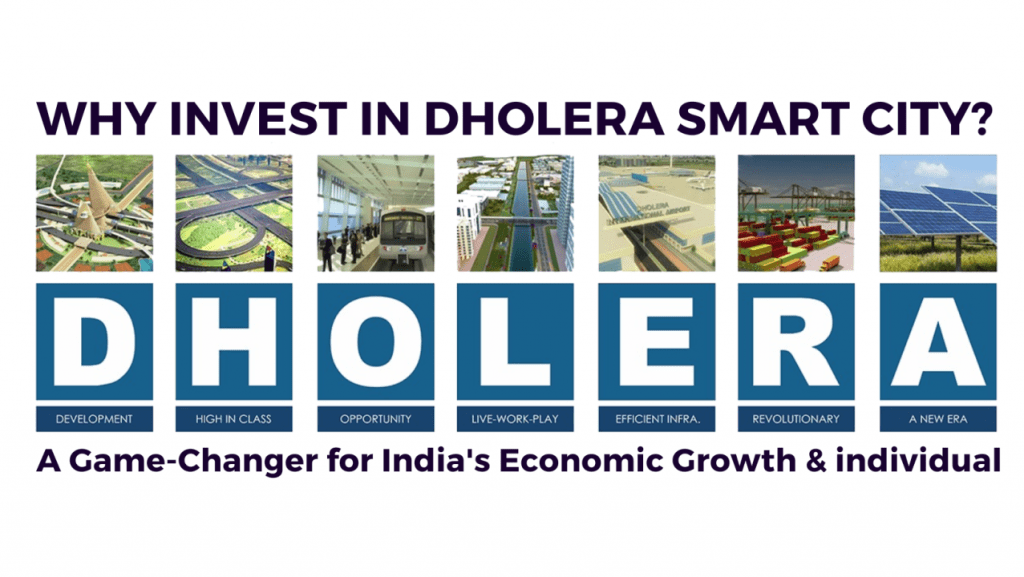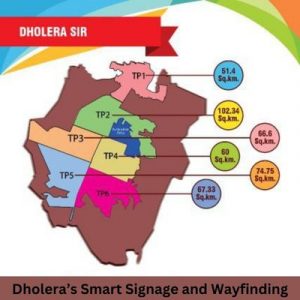Dholera, a small village in the Indian state of Gujarat, is on the verge of a significant transformation. Once known for its traditional agricultural base and limited infrastructure, Dholera is now emerging as a beacon of urbanization and industrialization, thanks to the ambitious Dholera Special Investment Region (DSIR) project. This mega-infrastructure initiative, part of the Delhi-Mumbai Industrial Corridor (DMIC), aims to develop Dholera into a world-class smart city. In this blog, we will delve into the impact of this transformation on local employment, exploring both the opportunities and challenges it presents.
Historical Context: Dholera Before the DSIR Project
Agricultural Roots
Dholera has traditionally been a rural community, with its economy largely dependent on agriculture and allied activities. The region’s fertile land supported cotton, wheat, and various pulses. Employment was predominantly seasonal, with many locals farming during the sowing and harvesting periods and seeking alternative livelihoods during the off-season.
Limited Infrastructure and Employment Opportunities
Before the advent of the DSIR project, Dholera’s infrastructure was rudimentary. Basic amenities such as healthcare, education, and transportation were minimal, limiting the scope for diversified employment opportunities. Most residents had to rely on agriculture or migrate to nearby cities like Ahmedabad for better job prospects.
The DSIR Project: A Game Changer
Vision and Objectives
The DSIR project envisions transforming Dholera into a global manufacturing and trading hub. Spread over 920 square kilometers, the project aims to create state-of-the-art infrastructure, including world-class roads, an international airport, high-speed rail connectivity, and sustainable urban development with smart city technologies.
Phased Development
The development of Dholera is planned in phases. The early phases focus on creating critical infrastructure and attracting initial investments. As the project progresses, it aims to foster industrial growth, residential development, and the establishment of commercial centers.
Impact on Local Employment
Direct Employment Opportunities
Construction Phase
The construction phase of the DSIR project has already created a significant number of jobs. Local laborers, engineers, architects, and various professionals have found employment in numerous infrastructure projects. The demand for skilled and unskilled labor has surged, providing immediate job opportunities to the local population.
Industrial and Manufacturing Jobs
As industries start setting up in Dholera, there will be a substantial increase in direct employment opportunities. Sectors such as manufacturing, logistics, information technology, and renewable energy are expected to be major job creators. The establishment of industrial units will require a diverse workforce, ranging from factory workers to managers and engineers.
Indirect Employment Opportunities
Ancillary Industries and Services
The growth of primary industries will spur the development of ancillary industries and services. Local businesses, such as suppliers, maintenance providers, and logistics companies, will thrive, creating additional employment opportunities. The demand for services like retail, hospitality, healthcare, and education will also increase, further boosting job creation.
Real Estate and Urban Development
The urbanization of Dholera will drive the real estate sector, leading to the construction of residential, commercial, and recreational spaces. This growth will create jobs in construction, real estate management, and various related fields, including interior design, landscaping, and property maintenance.
Skill Development and Training
Government and Private Initiatives
To ensure that the local population is equipped to take advantage of the new employment opportunities, various skill development and training programs have been initiated. Both government and private entities are involved in providing vocational training, technical education, and soft skills enhancement.
Local Workforce Empowerment
Empowering the local workforce through education and training is crucial for the success of the DSIR project. Initiatives such as setting up training centers, partnering with educational institutions, and offering on-the-job training programs are essential to bridge the skill gap and ensure that locals are prepared for the evolving job market.
Challenges and Concerns
Displacement and Resettlement
Land Acquisition Issues
One of the significant challenges associated with the DSIR project is land acquisition. While the project promises economic growth and employment, it also involves the displacement of local communities. Ensuring fair compensation and proper resettlement for affected families is critical to mitigate negative impacts.
Social Displacement
Beyond physical displacement, there is a risk of social displacement. The rapid urbanization and influx of new populations might disrupt the traditional social fabric of the region. Efforts must be made to integrate local communities into the urban development process, preserving cultural heritage and social cohesion.
Skill Mismatch
Education and Training Gaps
Despite the efforts in skill development, there remains a risk of a skill mismatch. The existing education system may not fully align with the requirements of the new job market. Continuous assessment and adaptation of training programs are necessary to ensure that the local workforce can meet the demands of emerging industries.
Technological Adaptation
The integration of advanced technologies in the smart city development poses another challenge. Ensuring that the local population can adapt to and thrive in a technologically advanced environment is crucial. This includes not only technical skills but also digital literacy and adaptability.
Environmental Concerns
Sustainable Development
Balancing economic growth with environmental sustainability is a significant concern. The large-scale industrial and urban development must adhere to sustainable practices to minimize environmental impact. Ensuring the preservation of natural resources, effective waste management, and reducing carbon footprints are essential for long-term success.
Impact on Agriculture
The transition from an agrarian economy to an industrialized one raises concerns about the future of agriculture in the region. Protecting agricultural land, supporting farmers, and promoting sustainable agricultural practices are necessary to ensure that agriculture remains a viable livelihood option.
Success Stories and Case Studies
Local Entrepreneurs and Small Businesses
Agritech Innovations
The transformation of Dholera has sparked innovation among local entrepreneurs. For instance, agritech startups are emerging, leveraging technology to improve agricultural practices, increase productivity, and create new business opportunities for farmers.
MSMEs (Micro, Small, and Medium Enterprises)
The development of Dholera has also encouraged the growth of MSMEs. Local businesses are diversifying and expanding, providing products and services to support the new industries. This growth has not only created jobs but also fostered a spirit of entrepreneurship in the region.
Women Empowerment
Inclusion in Workforce
The DSIR project has also had a positive impact on women’s employment. Various initiatives aim to include women in the workforce, providing training and job opportunities in sectors such as manufacturing, IT, and services. Empowering women through employment has broader social and economic benefits, contributing to the overall development of the community.
Social Enterprises
Social enterprises led by women are also gaining traction. These enterprises focus on addressing local issues, such as healthcare, education, and skill development, while creating employment opportunities for women and marginalized groups.
Future Prospects and Sustainability
Long-Term Economic Growth
Investment Attraction
Dholera’s development is expected to attract significant domestic and foreign investments. The establishment of industries, commercial centers, and residential areas will create a robust economic ecosystem, driving long-term economic growth and stability.
Infrastructure Development
The ongoing infrastructure development, including transportation, communication, and utilities, will further enhance Dholera’s attractiveness as an investment destination. Efficient infrastructure is key to sustaining industrial growth and ensuring the seamless functioning of the city.
Social and Environmental Sustainability
Inclusive Development
Ensuring that the benefits of development are equitably distributed is crucial for social sustainability. Policies and programs must focus on inclusive development, providing opportunities for all segments of the population, including marginalized groups.
Environmental Stewardship
Maintaining environmental sustainability is essential for the long-term success of the DSIR project. Implementing green building practices, renewable energy solutions, and sustainable urban planning will help mitigate environmental impact and create a livable, eco-friendly city.
Conclusion
The transformation of Dholera from a traditional agrarian community to a modern industrial and smart city presents both opportunities and challenges. The DSIR project promises substantial employment growth, economic development, and improved quality of life for the local population. However, addressing the challenges of displacement, skill mismatch, and environmental sustainability is critical for ensuring that the benefits of development are inclusive and long-lasting.
As Dholera continues to evolve, the focus must remain on empowering the local workforce, preserving cultural and social integrity, and fostering sustainable practices. By doing so, Dholera can serve as a model for balanced and inclusive development, showcasing how strategic urban planning and industrialization can transform communities and create a prosperous future for all.




